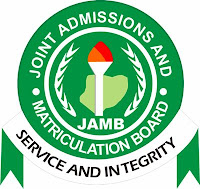Apply For Humboldt Research Fellowships For International Students In Germany For 2017-2018
;
 |
| 500 Humboldt Research Fellowships for international students in Germany - Apply! |
A Humboldt Research Fellowship for
experienced researchers allows you to carry out long-term research (6-18
months) in Germany. Applicants choose their own topic of research and their
academic host. The fellowship is flexible and can be divided up into as many as
three stays within three years.
The Alexander von Humboldt
Foundation (German: Alexander von Humboldt-Stiftung) is a foundation
established by the government of the Federal Republic of Germany and funded by
the Federal Foreign Office, the Federal Ministry of Education and Research, the
Federal Ministry for Economic Cooperation and Development as well as other
national and international partners; it promotes international academic
cooperation between excellent scientists and scholars from Germany and from
abroad.
Scholars in the humanities or social sciences and physicians must have a good knowledge of German if it is necessary to carry out the research successfully; otherwise a good knowledge of English; scientists and engineers must have a good knowledge of German or English.
Scholars in the humanities or social sciences and physicians must have a good knowledge of German if it is necessary to carry out the research successfully; otherwise a good knowledge of English; scientists and engineers must have a good knowledge of German or English.
Course
Level: Fellowships are available for
experienced researchers to carry out a long-term research project (6-18
months) at a research institution in Germany.
Study Subject(s): Applicants choose their own research projects and
their host in Germany and prepare their research plan
independently. Details of the research project and the time schedule must
be agreed upon with the prospective host in advance.
Scholarship
Award: The fellowship is worth 3,150 EUR
per month. This includes a mobility lump sum and a contribution towards health
and liability insurance.
Additional benefits for research fellows:
Additional benefits for research fellows:
·
lump sum for the fellow’s travel
expenses if the costs are not borne by a third party;
language fellowship for an intensive language course lasting two to four months at selected language institutes in Germany immediately prior to the actual period of research;
language fellowships may also be granted to accompanying marital partners.
language fellowship for an intensive language course lasting two to four months at selected language institutes in Germany immediately prior to the actual period of research;
language fellowships may also be granted to accompanying marital partners.
·
family allowances for accompanying
family members staying at least three months (monthly allowance: up to 326 EUR
for marital partners and up to 234 EUR for each child);
·
for single-parents: flat-rate
allowance for accompanying children (under the age of 18) forstays of at least
three months (400 EUR per month for the first child and 100 EUR per month for
every additional child);
·
additional extension of the
fellowship up to 12 month for research fellows accompanied by children under
the age of 12;
·
a subsidy towards research costs to
be paid to the hosts in Germany amounting to 800 EUR per month (for research in
the natural sciences and engineering) and 500 EUR (for research in the
humanities and social sciences);
·
Europe allowance for a research stay
at a research institute in another European country (though not the research
fellow’s own country); for a designated period in the course of the fellowship
if necessary to ensure the success of the research;
·
extensive alumni sponsorship once a
successful research stay has come to an end, especially for maintaining
contacts with collaborative partners in Germany during the Humboldtian’s entire
academic career.
Scholarship
can be taken in Germany
Eligibility:
·
Doctorate or comparable academic
degree (Ph.D., C.Sc. or equivalent), completed less than twelve years prior to
the date of application. If it is not possible or customary to take a doctorate
in the candidate’s subject or country, an application may be submitted up to 16
years after completing a Master’s or Diploma degree, provided that the
publication record is commensurate with the candidate’s career stage.
·
The candidate’s own research profile
documented by a comprehensive list of academic publications reviewed according
to international standards and printed in journals and/or by publishing houses.
·
Confirmation that research
facilities are available and mentoring agreement and a detailed expert’s
statement by an academic host at a research institution in Germany.
·
Three expert reviews from important
collaborative partners and/or academics from the candidate’s own institute and,
if possible, from abroad.
·
Necessary language skills:
humanities or social sciences and medicine: good knowledge of German if it is necessary
to carry out the research successfully; otherwise a good knowledge of English;
natural sciences and engineering: good knowledge of German or English.
Potential applicants who have been in Germany for more than six months at the
time of application are not eligible to apply.
Nationality: Scientists and scholars of all nationalities may
apply for these Humboldt Research Fellowships.
College
Admission Requirement
Entrance
Requirement: Applicant must have a doctorate or
comparable academic degree (Ph.D., C.Sc. or equivalent), completed less than
twelve years prior to the date of application.
English
Language Requirement: Scholars in the humanities or
social sciences and physicians must have a good knowledge of German if it is
necessary to carry out the research successfully; otherwise a good knowledge of
English; scientists and engineers must have a good knowledge of German or
English.
How to
Apply: Applications should be
submitted by post.
Application
Deadline: Applications may be sent at any
time. The complete application should be submitted to the Humboldt
Foundation at least four to seven months ahead of the prospective selection
date. The selection committee meets three times a year, in March, July and
November.





Comments
Post a Comment
Disclaimer: All comments on this blog are the thought and opinion of blog readers, We will not in anyway be liable for them. Thank you.